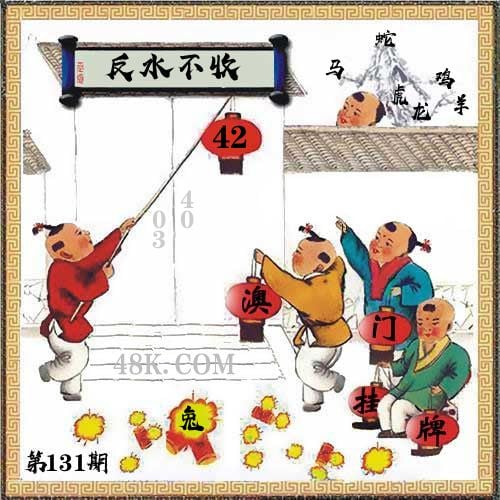最新公告:
【官方易記域名:www.09178.com】
港彩高手出版精料
澳門精華區(qū)
香港精華區(qū)
- 109期:【貼身侍從】必中雙波 已公開(kāi)
- 109期:【過(guò)路友人】一碼中特 已公開(kāi)
- 109期:【熬出頭兒】絕殺兩肖 已公開(kāi)
- 109期:【匆匆一見(jiàn)】穩(wěn)殺5碼 已公開(kāi)
- 109期:【風(fēng)塵滿身】絕殺①尾 已公開(kāi)
- 109期:【秋冬冗長(zhǎng)】禁二合數(shù) 已公開(kāi)
- 109期:【三分酒意】絕殺一頭 已公開(kāi)
- 109期:【最愛(ài)自己】必出24碼 已公開(kāi)
- 109期:【貓三狗四】絕殺一段 已公開(kāi)
- 109期:【白衫學(xué)長(zhǎng)】絕殺一肖 已公開(kāi)
- 109期:【滿目河山】雙波中 已公開(kāi)
- 109期:【寥若星辰】特碼3行 已公開(kāi)
- 109期:【凡間來(lái)客】七尾中特 已公開(kāi)
- 109期:【川島出逃】雙波中特 已公開(kāi)
- 109期:【初心依舊】絕殺四肖 已公開(kāi)
- 109期:【真知灼見(jiàn)】7肖中特 已公開(kāi)
- 109期:【四虎歸山】特碼單雙 已公開(kāi)
- 109期:【夜晚歸客】八肖選 已公開(kāi)
- 109期:【夏日奇遇】穩(wěn)殺二尾 已公開(kāi)
- 109期:【感慨人生】平特一肖 已公開(kāi)
- 109期:【回憶往事】男女中特 已公開(kāi)
- 109期:【瘋狂一夜】單雙中特 已公開(kāi)
- 109期:【道士出山】絕殺二肖 已公開(kāi)
- 109期:【相逢一笑】六肖中特 已公開(kāi)
- 109期:【兩只老虎】絕殺半波 已公開(kāi)
- 109期:【無(wú)地自容】絕殺三肖 已公開(kāi)
- 109期:【涼亭相遇】六肖中 已公開(kāi)
- 109期:【我本閑涼】穩(wěn)殺12碼 已公開(kāi)
- 109期:【興趣部落】必中波色 已公開(kāi)
【管家婆一句話】

【六肖十八碼】

天天好彩【六肖中特】
天天好彩【平尾心水秘籍】
天天好彩【幽默猜測(cè)】
天天好彩澳門正版圖庫(kù)
- 澳門四不像
- 澳門傳真圖
- 澳門跑馬圖
- 新掛牌彩圖
- 另版跑狗圖
- 老版跑狗圖
- 澳門玄機(jī)圖
- 玄機(jī)妙語(yǔ)圖
- 六麒麟透碼
- 平特一肖圖
- 一字解特碼
- 新特碼詩(shī)句
- 四不像玄機(jī)
- 小黃人幽默
- 新生活幽默
- 30碼中特圖
- 澳門抓碼王
- 澳門天線寶
- 澳門一樣發(fā)
- 曾道人暗語(yǔ)
- 魚(yú)躍龍門報(bào)
- 無(wú)敵豬哥報(bào)
- 特碼快遞報(bào)
- 一句真言圖
- 新圖庫(kù)禁肖
- 三怪禁肖圖
- 正版通天報(bào)
- 三八婆密報(bào)
- 博彩平特報(bào)
- 七肖中特報(bào)
- 神童透碼報(bào)
- 內(nèi)幕特肖B
- 內(nèi)幕特肖A
- 內(nèi)部傳真報(bào)
- 澳門牛頭報(bào)
- 千手觀音圖
- 夢(mèng)兒數(shù)碼報(bào)
- 六合家寶B
- 合家中寶A
- 六合簡(jiǎn)報(bào)圖
- 六合英雄報(bào)
- 澳話中有意
- 彩霸王六肖
- 馬會(huì)火燒圖
- 狼女俠客圖
- 鳳姐30碼圖
- 勁爆龍虎榜
- 管家婆密傳
- 澳門大陸仔
- 傳真八點(diǎn)料
- 波肖尾門報(bào)
- 紅姐內(nèi)幕圖
- 白小姐會(huì)員
- 白小姐密報(bào)
- 澳門大陸報(bào)
- 波肖一波中
- 莊家吃碼圖
- 發(fā)財(cái)波局報(bào)
- 36碼中特圖
- 澳門男人味
- 澳門蛇蛋圖
- 白小姐救世
- 周公玄機(jī)報(bào)
- 值日生肖圖
- 鳳凰卜封圖
- 騰算策略報(bào)
- 看圖抓碼圖
- 神奇八卦圖
- 新趣味幽默
- 澳門老人報(bào)
- 澳門女財(cái)神
- 澳門青龍報(bào)
- 財(cái)神玄機(jī)報(bào)
- 內(nèi)幕傳真圖
- 每日閑情圖
- 澳門女人味
- 澳門簽牌圖
- 澳六合頭條
- 澳門碼頭詩(shī)
- 澳門兩肖特
- 澳門猛虎報(bào)
- 金錢豹功夫
- 看圖解特碼
- 今日閑情1
- 開(kāi)心果先鋒
- 今日閑情2
- 濟(jì)公有真言
- 四組三連肖
- 金多寶傳真
- 皇道吉日?qǐng)D
- 澳幽默猜測(cè)
- 澳門紅虎圖
- 澳門七星圖
- 功夫早茶圖
- 鬼谷子爆肖
- 觀音彩碼報(bào)
- 澳門不夜城
- 掛牌平特報(bào)
- 新管家婆圖
- 鳳凰天機(jī)圖
- 賭王心水圖
- 佛祖禁肖圖
- 財(cái)神報(bào)料圖
- 二尾四碼圖
- 東成西就圖
- 12碼中特圖
- 單雙中特圖
- 八仙指路圖
- 八仙過(guò)海圖
- 正版射牌圖
- 澳門孩童報(bào)
- 通天報(bào)解碼
- 澳門熊出沒(méi)
- 鐵板神算圖
















